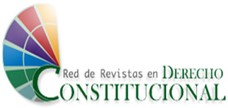WHO CONTROLS THE COMPTROLLING BODY OF THE MAGISTRATURE?
WHEN THE IMPOSITION OF AN ADMINISTRATIVE CAUTION OF PREVENTIVE SUSPENSION VULNERA FUNDAMENTAL RIGHTS
Keywords:
Administrative precautionary measure of preventive suspension, Executive Council of the Judicial Power, ody of Control of the Magistrature, Constitutional right, Fundamental rights, Sanctioning Administrative Constitutional LawAbstract
The basilar function of the Peruvian Judicial Control Body is precisely to exercise corresponding control. This implies that in the exercise of it, there can be no excess, arbitrariness, discretion in any way; Rather the complete opposite. In this sense, it should be noted that the aforementioned control would not be carried out correctly, in accordance with the law, within the framework of a constitutional state of law. Thus, we have that not a few resolutions of the same have been object of justified as worrying criticisms and claims. The issue is dangerously complicated when it is evident that the aforementioned body does not have an entity that can control or supervise its performance. So, without having a body that can control the comptroller, decisions can easily become discretionary, subjective, biased, and illegal. When this happens, it is not only that the resolutions are illegitimate, but that the same fate ends up running with the referee who signs the resolutions. AND In the present work, a resolution of the Executive Council of the Peruvian Judicial Power is analyzed, where it resolves about the imposition of a sanction, that is, an administrative precautionary measure of preventive suspension, against a magistrate and jurisdictional personnel. The approach given to its development is of a constitutional nature and of fundamental rights. This, on the understanding that for its preparation only the law would have been taken into account. The aforementioned is of great concern, since the Constitutional State of Law currently governs, therefore, the entire legal system must embrace the spirit contained in the Constitution. Thus, the foundation of the resolutions, whether judicial or administrative, must compulsorily register the postulates in the Constitutional headquarters. Consequently, we do it from said approach, since it is from the same one that will allow us to determine the level of soundness of the decisions. Furthermore, it should be noted that the two major deficiencies in the countries of the region are institutionality and infrastructure. Therefore, not exercising control over the judiciary systematically de-institutionalizes the judiciary, to say the least. Based on the above, we begin by making a brief development about the legal nature and various aspects of the precautionary measure. Next, we prepare a brief summary of the resolution subject to comment on this issue. Next, we carry out the corresponding analysis. Finally, we arrive at the respective conclusions and suggestions.
References
VILAR, Silvia Barona. Las medidas cautelares: Introducción. En: VV.AA. Las medidas cautelares. Consejo General del Poder Judicial. Madrid, 1993.
BARRERA, Eloy Espinosa-Saldaña. Medidas cautelares en el procedimiento administrativo peruano: una mirada crítica a lo realizado y un adelanto sobre aquello que debiera hacerse al respecto. Revista Circulo de Derecho Administrativo. Lima, n. 9, 2010. Disponível em: http://revistas.pucp.edu.pe/index.php/derechoadministrativo/article/view/13712/14336.
MINGUEZ, Alberto Hinostroza. El embargo y otras medidas cautelares. Editorial San Marcos. Lima, 2005.
LOZANO, Carlos A. Hernández. Proceso cautelar. Ediciones Jurídicas. Lima, 1997.
RIVAS, Adolfo A. Las medidas cautelares en el derecho peruano. Jurista Editores. Lima, 2005.
URTEAGA, Pedro Sagastegui. Procesos de ejecución. Acciones en materia de títulos valores y procesos cautelares. Editorial San Marcos. Lima, 1996.









